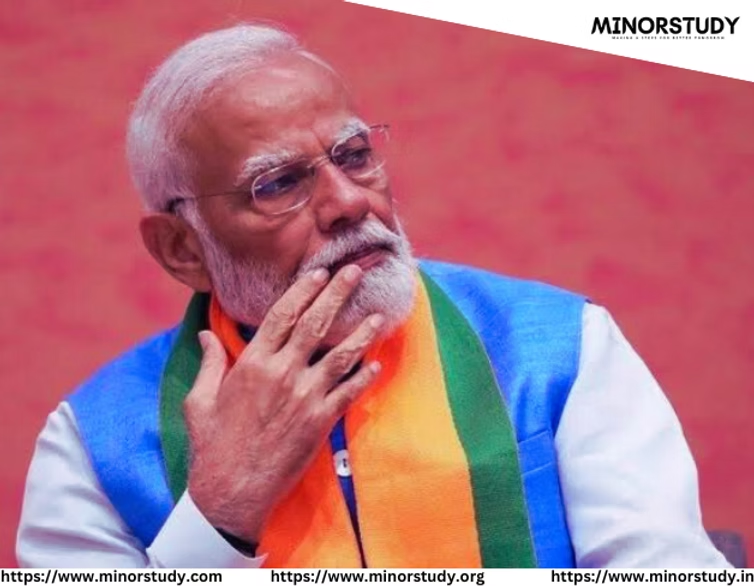Narendra Modi: Prime Minister of India
Narendra Modi is the 14th Prime Minister of India, serving since May 26, 2014. He is one of India’s most influential leaders, known for his economic reforms, foreign policy initiatives, and emphasis on infrastructure development and digital transformation.
Early Life and Education
Full Name: Narendra Damodardas Modi
Date of Birth: September 17, 1950
Place of Birth: Vadnagar, Gujarat, India
Family: Born into a modest family, his father was a tea seller, and young Modi helped at his father’s tea stall.
Education:
Completed schooling in Vadnagar.
Earned a degree in Political Science from the University of Delhi through distance learning.
Holds a Master’s degree in Political Science from Gujarat University.
Political Journey
Early Political Involvement:
Joined the Rashtriya Swayamsevak Sangh (RSS) as a pracharak (campaigner) in his youth, laying the foundation for his political ideology.
Rise in BJP:
Became a key member of the Bharatiya Janata Party (BJP), focusing on organizational work and grassroots mobilization.
Played a pivotal role in the BJP’s campaigns during the 1990s, including the Rath Yatra led by L.K. Advani.
Chief Minister of Gujarat (2001–2014):
Took over as Gujarat’s Chief Minister after the 2001 earthquake and led the state through rapid industrialization and economic growth.
Initiated pro-business policies and infrastructure projects that earned Gujarat the reputation of being an investment-friendly state.
Prime Minister of India:
First elected as PM in 2014, with the BJP winning a historic majority.
Re-elected in 2019, securing an even larger mandate.
Key Achievements as Prime Minister
Economic Reforms:
Implemented the Goods and Services Tax (GST), a major tax reform to unify the Indian market.
Launched the Make in India campaign to promote manufacturing and investment.
Welfare and Development:
Introduced schemes like Jan Dhan Yojana (financial inclusion), Ujjwala Yojana (LPG for rural households), and Ayushman Bharat (health insurance for the poor).
Infrastructure:
Spearheaded initiatives like Smart Cities, Digital India, and significant investment in highways, railways, and renewable energy.
Foreign Policy:
Strengthened ties with countries globally while asserting India’s strategic autonomy.
Hosted and participated in key international summits, including the G20, BRICS, and Quad.
Landmark Decisions:
Abrogated Article 370, revoking Jammu & Kashmir’s special status in 2019.
Introduced and later repealed the Farm Laws amidst protests.
Oversaw India’s response to the COVID-19 pandemic, including vaccine development and distribution under the Vaccine Maitri initiative.
Leadership Style
Known for his charismatic oratory, mass appeal, and a focus on development-oriented governance.
Criticized by opponents for being polarizing but lauded by supporters for his decisive leadership.
Global Recognition
Featured in Time 100 Most Influential People multiple times.
Acknowledged as a transformative leader who has reshaped India’s global standing.
Personal Life
Known for his disciplined lifestyle, vegetarianism, and practice of yoga.
A prolific writer, Modi has authored books, including poetry and reflections on his life and leadership.
Narendra Modi remains a defining figure in contemporary Indian politics, representing a vision of development, self-reliance, and nationalism.









Trust Finance https://trustf1nance.com is your path to financial freedom. Real investments, transparent conditions and stable income.